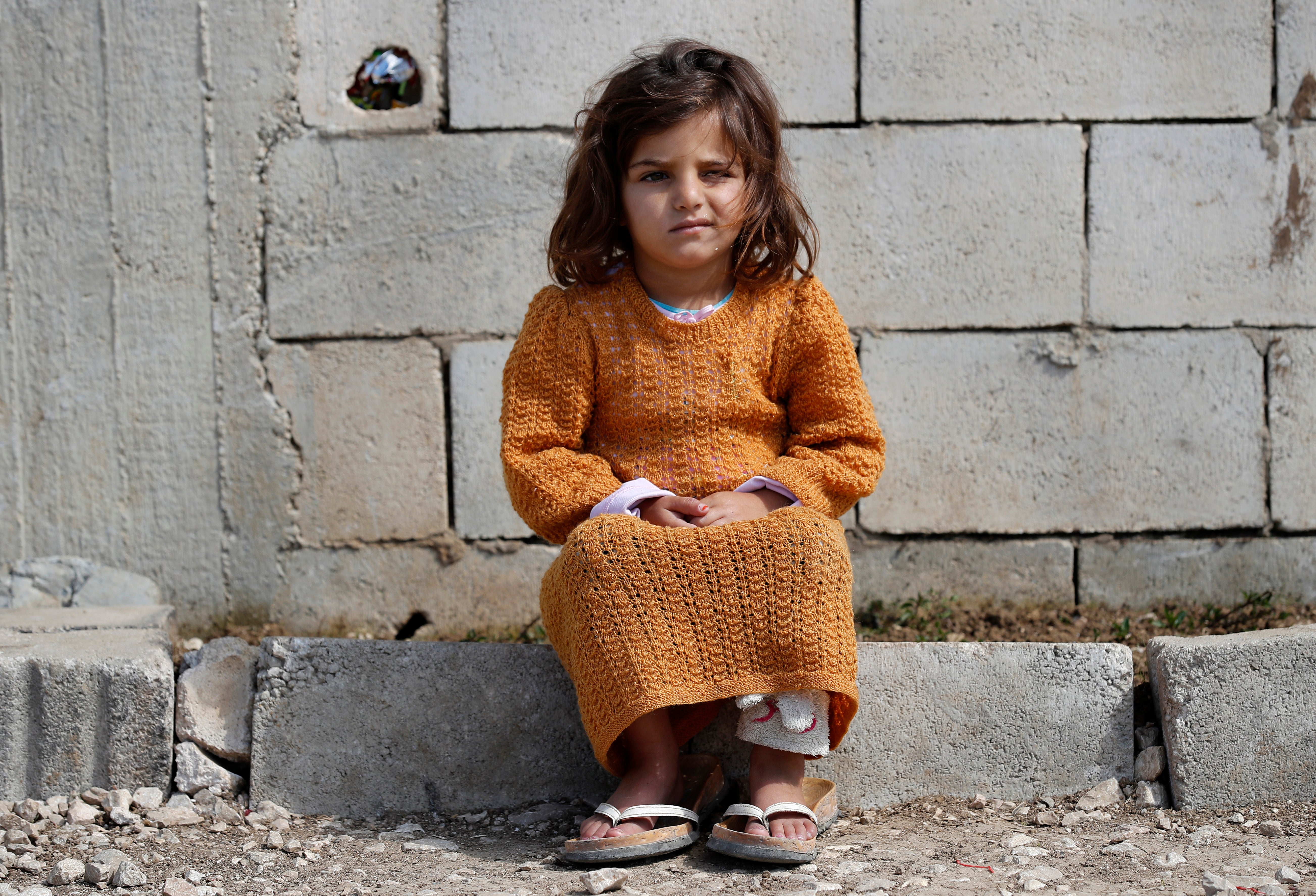UNICEF: Syria's war has killed and wounded 12,000 children
The U.N. children’s agency says Syria’s 10-year-long civil war has killed or wounded about 12,000 children and left millions out of school in what could have repercussions for years to come in the country

Your support helps us to tell the story
From reproductive rights to climate change to Big Tech, The Independent is on the ground when the story is developing. Whether it's investigating the financials of Elon Musk's pro-Trump PAC or producing our latest documentary, 'The A Word', which shines a light on the American women fighting for reproductive rights, we know how important it is to parse out the facts from the messaging.
At such a critical moment in US history, we need reporters on the ground. Your donation allows us to keep sending journalists to speak to both sides of the story.
The Independent is trusted by Americans across the entire political spectrum. And unlike many other quality news outlets, we choose not to lock Americans out of our reporting and analysis with paywalls. We believe quality journalism should be available to everyone, paid for by those who can afford it.
Your support makes all the difference.Syria’s 10-year-long civil war has killed or wounded almost 12,000 children and left millions out of school in what could have repercussions for years to come in the country, the U.N. children’s agency said Wednesday.
The grim statistics were released in a UNICEF report ahead of the 10th anniversary of Syria’s conflict that began in mid-March 2011. The war has killed nearly half a million people, wounded more than a million and displaced half the country’s population, including more than 5 million as refugees.
Over the past year, the situation has been compounded by a severe economic and financial crisis and the spread of coronavirus in this Mideast country, where medical facilities have been hard hit by a devastating war that left large parts of Syria destroyed.
The reported numbers of children displaying symptoms of psychosocial distress doubled in 2020, as continued exposure to violence, shock and trauma had a significant impact on children’s mental health, with short and long-term implications, it said.
UNICEF said almost 12,000 children were killed or injured in the past decade, according to verified data, and more than 5,700 children, some as young a 7-years-old, were recruited into the fighting, it added.
It also said that since the conflict began, more than 1,300 educational and medical facilities and personnel have come under attack.
The agency said that nearly 2.45 million children in Syria and an additional 750,000 Syrian children in neighboring countries are out of school, 60% of them boys. It said the situation for many children and families remains precarious, with nearly 90% of children in need of humanitarian assistance, a 20% increase in the past year alone.
“This cannot be just another grim milestone, passing by in the world’s peripheral vision as children and families in Syria continue to struggle,” said UNICEF Executive Director Henrietta Fore.
She added that the international community should make “every effort to bring about peace to Syria and galvanize support for its children.”
Syrian President Bashar Assad’s forces have gained control of much of the country with the help of his allies Russia and Iran Insurgents still control an area in Syria’s northwest that is home to more than 3 million people, many of them internally displaced.
UNICEF said the situation in the northwest is “alarming,” with many families that have fled violence multiple times, some as many as seven times, in search of safety. It said children have suffered through another long winter where many people living in tents and unfinished buildings battled severe weather, including torrential rain and snow.
More than 75% “of the grave violations recorded in 2020 occurred in the northwest,” UNICEF said.
A Russian-backed government offensive last year on the northwest displaced hundreds of thousands and was stopped by a truce reached between Russia and Turkey, which support rival parties in the conflict.
UNICEF said it has continued to provide lifesaving humanitarian assistance to children and families in Syria and the neighboring countries in 2020, including nearly 900,000 immunizations or vaccinations against measles, and psychosocial support to over 400,000 children.
It said humanitarian organizations urgently need support and funding to deliver assistance to Syria’s children. UNICEF is appealing for $1.4 billion for its response inside Syria and the neighboring countries for 2021.
The agency said as the economic crisis worsened last year, the price of the average food basket increased by over 230%. More than half a million children under the age of 5 in Syria “suffer from stunting as a result of chronic malnutrition.”
“There are no winners in this war and the biggest loss is brought upon Syria’s children,” UNICEF said. “It is time for warring parties to put the guns down and come to the negotiation table.”